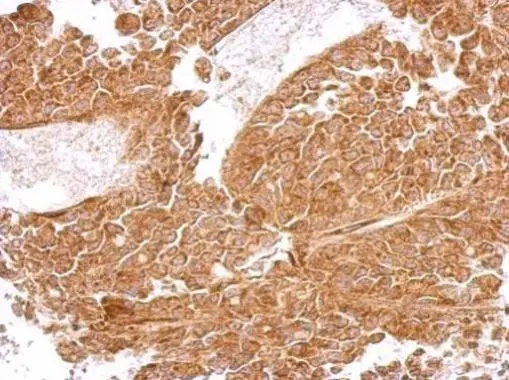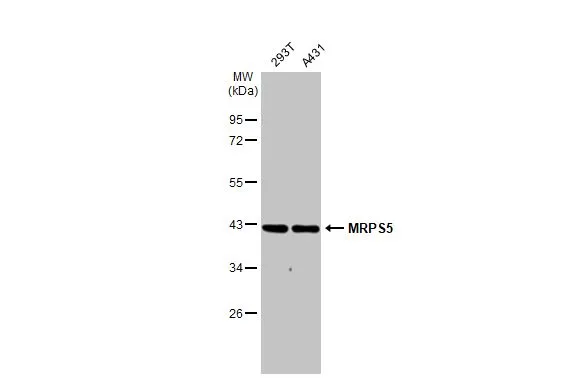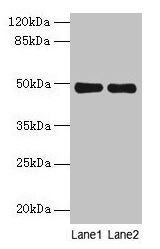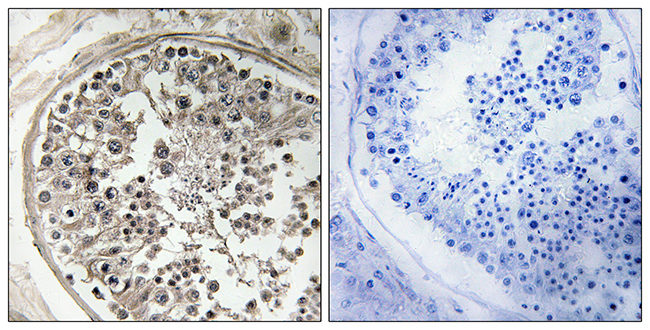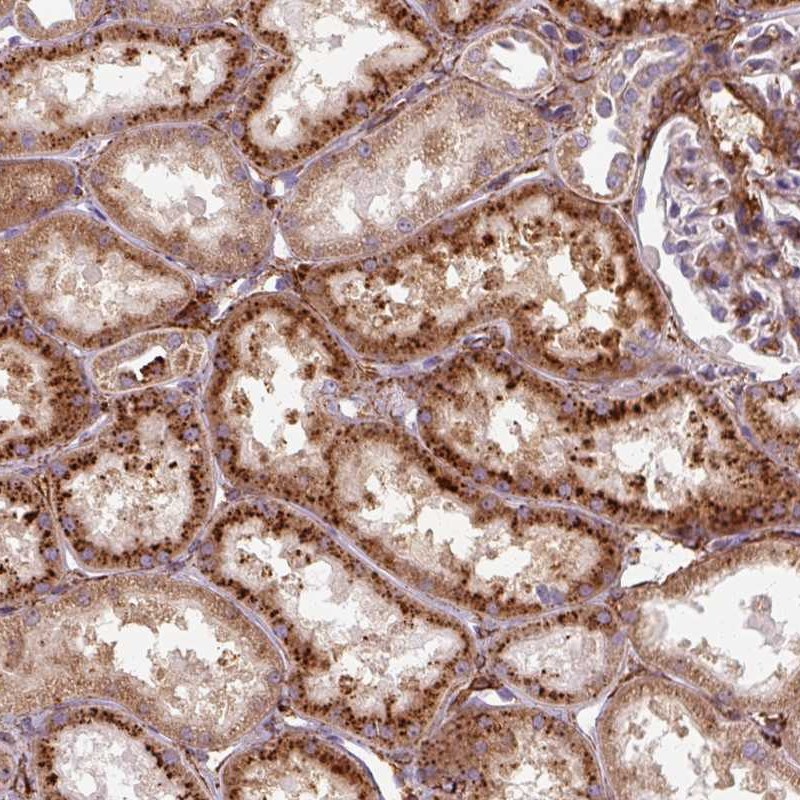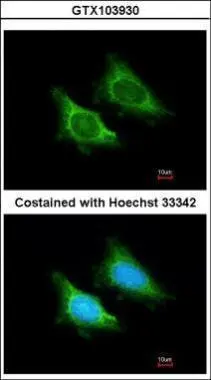
Immunofluorescence analysis of methanol-fixed HeLa, using MRPS5(GTX103930) antibody at 1:200 dilution.
MRPS5 antibody
GTX103930
ApplicationsImmunoFluorescence, Western Blot, ImmunoCytoChemistry, ImmunoHistoChemistry, ImmunoHistoChemistry Paraffin
Product group Antibodies
ReactivityHuman
TargetMRPS5
Overview
- SupplierGeneTex
- Product NameMRPS5 antibody
- Delivery Days Customer9
- Application Supplier NoteWB: 1:500-1:3000. ICC/IF: 1:100-1:1000. IHC-P: 1:100-1:1000. *Optimal dilutions/concentrations should be determined by the researcher.Not tested in other applications.
- ApplicationsImmunoFluorescence, Western Blot, ImmunoCytoChemistry, ImmunoHistoChemistry, ImmunoHistoChemistry Paraffin
- CertificationResearch Use Only
- ClonalityPolyclonal
- Concentration1 mg/ml
- ConjugateUnconjugated
- Gene ID64969
- Target nameMRPS5
- Target descriptionmitochondrial ribosomal protein S5
- Target synonymsMRP-S5, S5mt, uS5m, small ribosomal subunit protein uS5m, 28S ribosomal protein S5, mitochondrial, mitochondrial 28S ribosomal protein S5, mitochondrial small ribosomal subunit protein uS5m
- HostRabbit
- IsotypeIgG
- Protein IDP82675
- Protein NameSmall ribosomal subunit protein uS5m
- Scientific DescriptionMammalian mitochondrial ribosomal proteins are encoded by nuclear genes and help in protein synthesis within the mitochondrion. Mitochondrial ribosomes (mitoribosomes) consist of a small 28S subunit and a large 39S subunit. They have an estimated 75% protein to rRNA composition compared to prokaryotic ribosomes, where this ratio is reversed. Another difference between mammalian mitoribosomes and prokaryotic ribosomes is that the latter contain a 5S rRNA. Among different species, the proteins comprising the mitoribosome differ greatly in sequence, and sometimes in biochemical properties, which prevents easy recognition by sequence homology. This gene encodes a 28S subunit protein that belongs to the ribosomal protein S5P family. Pseudogenes corresponding to this gene are found on chromosomes 4q, 5q, and 18q. [provided by RefSeq]
- ReactivityHuman
- Storage Instruction-20°C or -80°C,2°C to 8°C
- UNSPSC41116161

